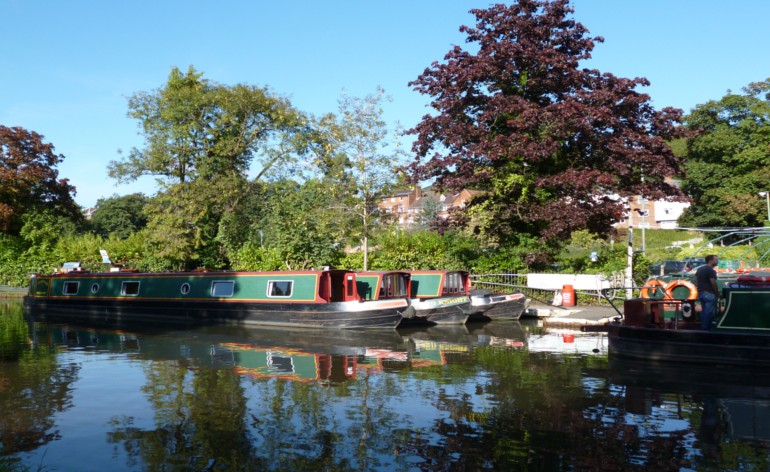Long before Guildford had its quaint cobbled High Street, before the towering cathedral and looming castle, the River Wey flowed through the heart of what would become ‘Our Town’. Without it, Guildford would, quite literally not be the town it is today. The River Wey played an enormously important role in the history and prosperity of Guildford, and it will forever hold a fond place in the hearts of its residents.
Guildford started off as a tiny Saxon settlement, and these original few settlers chose the banks of the River Wey as the place to build their new homes. They named it Guilden (golden) Ford. Whether it was named so for the golden wildflowers blossoming along the riverside or the golden sands along its banks we will never know. But what is known is that the name of Guildford has lasted millennia.
Guildford grew and prospered along the shores of the River Wey, despite its waters being almost impassable as a waterway. And although it was connected to the Thames, its usefulness was severely hampered by the inability to travel through its waters. So, while picturesque and a great provider of both fish and fowl, it was far from reaching its full potential.
Before the early Industrial Revolution brought with it the canal builders that would forever change the face of our country, Sir Richard Weston led the way with Wey Navigation in 1651. This wealthy landowner saw in the impassable River Wey a fantastic opportunity to expand the commerce of Guildford and he took it. Work began, but sadly Sir Weston did not live to see its completion in 1653. It is because of him that twelve locks were placed along the river, the very first in Britain, with Stoke lock being the oldest. Though Sir Weston never got to see the huge impact that his actions had, his legacy still stands in the River Wey as testament to his innovation.
This wonderful new ability to ship goods to and from London and the South meant that Guildford boomed. With horse drawn barges and sailboats it could quickly and efficiently export the wool that had been Guildford’s trademark for centuries. With the construction of two mills in Chilworth that produced grain and gunpowder, Guildford experienced an influx of wealth and established itself as a great market town.
Wey Navigation was a roaring success from the 1650’s right up until the 19th century, when the arrival of the railway would once again change Britain forever. Though Wey Navigation was fading in its importance, Guildford remained centred around the twisting and turning body of water, despite the destruction that it wreaked over the years.
Routine flooding throughout the 20th century did nothing to dissuade businesses from setting up along the banks of the river, even after floodwater destroyed Moon’s Timber Yard in 1902, and sent planks and debris smashing into the wooden bridge, destroying it. Some residents still remember when, in 1968, the river broke its banks once again, rising to record levels. There is still a plaque on St. Nicholas’s church, opposite Debenhams, that marks the level that the floodwater rose to. Thankfully we have been fortunate enough not to experience this in recent years!
Now the River Wey remains, having grown and evolved with the town, a monument and memorial of the growth of our town, from the very first Saxon settlers to the present day. Instead of horse drawn barges and sailboats we have house boats and kayaks, plus traditional British pubs dotted along its banks, offering stunning views from their gardens.
There is a multitude of scenic walks ideal for anyone seeking a little peace and quiet away from busy town life. Take a seat on the balcony of Debenhams or the Yvonne Arnaud terrace and watch excitable children race to feed the ducks. Or behold Guildford’s ancient locks still in use today, and gaze across at one of the few remaining mills which may not still be operational, but it is not forgotten as the Mill Studio represents.
The River Wey represents the true heart of Guildford; an amazing combination of the old and the new coexisting in peace; charming and unique. Take a walk along the riverside and relish the River Wey and everything that it has to offer, past, present and future.
Charli Aisha Harris

